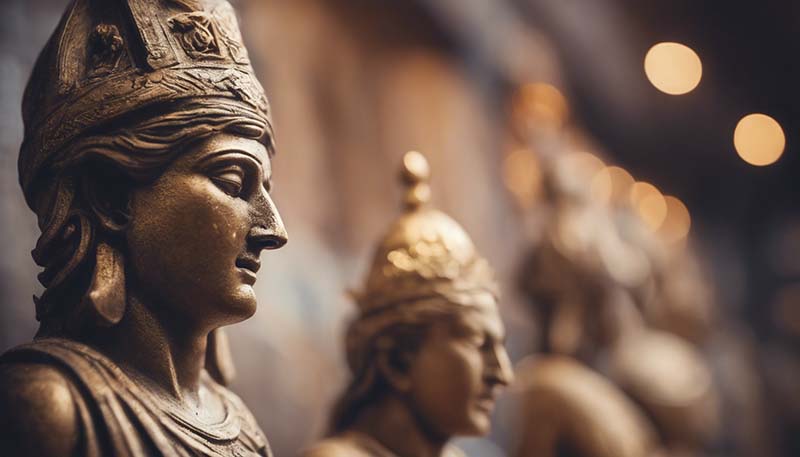Religions of the Ancient World: A Spiritual Journey
The ancient world was a tapestry of diverse spiritual beliefs and practices, each as unique and complex as the civilizations that birthed them. This article aims to explore some of the most prominent religions of the ancient world, providing a glimpse into the spiritual journeys that shaped human history.
Ancient Egypt - The Religion of the Pharaohs
Egyptian religion was a complex system of polytheistic beliefs and rituals which were an integral part of ancient Egyptian society. The Egyptians believed in a vast pantheon of gods who governed the world and its many aspects.
The Pantheon and Afterlife
The gods were not only worshipped but were also believed to interact with humans. The concept of the afterlife was a central aspect of Egyptian spirituality, with the deceased's journey through the underworld being a common theme in religious texts and art.
Advertisement
Temples and Rituals
Temples were not just places of worship but were also economic and political centers. Rituals included offerings to the gods, which were often in the form of food, drink, or precious items.
Greece - The Olympian Pantheon
Greek religion was characterized by a group of deities known as the Olympians, who were said to live on Mount Olympus. These gods were very human-like and played a significant role in the lives of the ancient Greeks.
Myths and Mortals
Greek mythology is a vast collection of stories that feature the gods, heroes, and the origins of the world. These myths were not just entertainment but also served to explain the world and teach moral lessons.
Oracles and Festivals
The ancient Greeks consulted oracles, such as the one at Delphi, for guidance and insight. Religious festivals, such as the Olympic Games and the Eleusinian Mysteries, were important events that brought communities together.
Roma - The Roman Pantheon and the Cult of the Emperor
Roman religion was heavily influenced by Greek mythology but also had its own unique deities and practices. The Romans were known for their practical approach to religion, often adopting the gods of conquered peoples.
Janus and Jupiter
The Romans had a pantheon of gods similar to the Greeks, with Jupiter, the king of the gods, being the most prominent. Janus, the god of beginnings, was also significant, symbolizing the duality of Roman life.
The Imperial Cult
Towards the end of the Republic and into the Imperial period, the cult of the emperor became an important aspect of Roman religion. Emperors were often deified after their death, and their cults were a means of maintaining political control.
Mesopotamia - The Cradle of Civilization
Mesopotamia, the land between the Tigris and Euphrates rivers, was home to some of the earliest known civilizations. The religious beliefs of the Sumerians, Babylonians, and Assyrians were deeply intertwined with their daily lives.

The Code of Hammurabi
One of the most famous examples of Mesopotamian religion is the Code of Hammurabi, which was inscribed on a stele and represented the divine law as established by the gods.
Creation and Flood Stories
The Epic of Gilgamesh contains one of the oldest known stories of a great flood, which has parallels with the biblical story of Noah. This epic and others like it provide insight into Mesopotamian beliefs about the gods and the universe.
India - The Vedic Tradition and the Upanishads
Hinduism has its roots in the ancient religious practices of the Indian subcontinent. The Vedas, a collection of sacred texts, are among the oldest religious writings in the world.
The Vedas and the Upanishads
The Vedas contain hymns, prayers, and rituals, and they form the basis of much of Hindu theology. The Upanishads, which are philosophical texts, explore the nature of reality and the self.
Vishnu, Shiva, and Brahma
The Hindu pantheon includes a trinity of gods known as Brahma (the creator), Vishnu (the preserver), and Shiva (the destroyer). These gods represent different aspects of the divine and are central to many Hindu beliefs.
Conclusion
The religions of the ancient world offer a fascinating look into the spiritual beliefs that shaped human history. From the pyramids of Egypt to the temples of Greece, from the ziggurats of Mesopotamia to the Vedic texts of India, these religions continue to influence our understanding of the divine and our place in the cosmos.
Comments